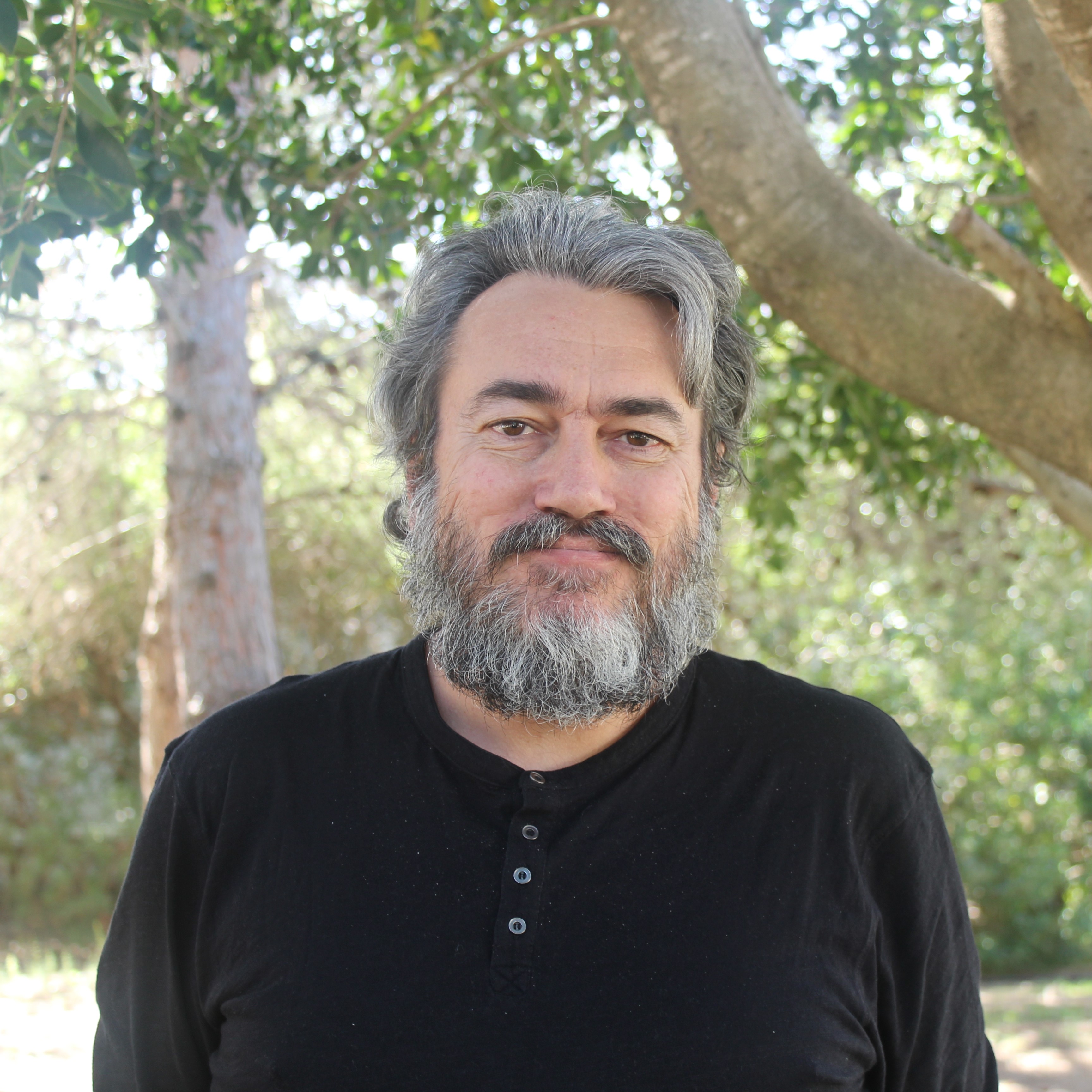Plant vegetative and reproductive development

Sara Zenoni
University of Verona
Sara Zenoni, Associate Professor in Agricultural Genetics, Department of Biotechnology, University of Verona, Italy. PhD in Agro-industrial Biotechnology, Department of Biotechnology, University of Verona, Italy.
As of 14/02/2024 I have 75 publications indexed in Web of Science starting in 2002 that have attracted in Google Scholar 5385 citations for an H-index of 35. Scopus Author ID: 6603606488; ORCID Author ID: 0000-0002-0496-8161
My research activity is focused on transcriptional complexity during grapevine berry development, molecular interpretation of the genotype X environment interaction, definition of molecular mechanisms marking the onset of berry ripening, gene functional analysis in grapevine, application of new breeding technologies and implementation of protocols for grapevine in vitro regeneration. My research group has contributed to the identification and characterization of NAC transcription factors as master regulators of the onset of berry ripening and has been instrumental in establishing protocols and procedures for grapevine protoplast isolation and regeneration for the application of the new breeding techniques. We were the first in 2023 to demonstrate the possibility to obtain a DNA-free edited grapevine plant by protoplast transfection and regeneration.
Co-Founder and Vice-Director of EdiVite SRL, a spin-off of the University of Verona with the status of innovative Startup. I am inventor on a national patent concerning the “Transfection of protoplasts from grapevine plants with the Cas9/gRNA complex and regeneration of relative edited grapevine plants”.
Fruit and wine yield and composition

Markus Keller
Washington State University
Markus Keller is the Chateau Ste. Michelle Distinguished Professor of Viticulture at Washington State University’s Irrigated Agriculture Research and Extension Center. He received his MS in plant science and PhD in natural science from the Swiss Federal Institute of Technology in Zürich. He has conducted research and taught in North and South America, Europe, and Australia. His research focuses on how environmental factors and management practices influence crop physiology and sustainable production of wine and juice grapes. He is the author of the textbook “The Science of Grapevines” and currently serves as the science editor for the American Journal of Enology and Viticulture.
Abiotic interactions

Nathalie Ollat
INRAE - ISVV Bordeaux
Nathalie Ollat received a Ph.D. in agronomic sciences from Montpellier Supagro (France), with emphases in viticulture and plant physiology. Dr. Ollat joined the INRA (French National Institute for Agricultural Research) viticulture research center in Bordeaux (France) in 1988, to implement studies on training systems. After dealing with berry development during her Ph-D, she initiated, in the early 2000s, a research program on the interactions of grapevine rootstocks with biotic and abiotic factors.
Dr. Ollat and her research team are studying the impact of rootstocks on grapevine nutrition, water intake, vine growth and yields, providing a body of knowledge useful to breed new rootstocks. Since 2010, Dr. Ollat expanded her research efforts to focus on the impact of climate change on grape growing. She has been co-directing the “LACCAVE” program on long-term impacts and adaptations to climate change in viticulture and oenology in France (2012-2020).
In April 2018, she was promoted to the position of director of the Research Unit for Vine Ecophysiology and Functional Genomics (UMR EGFV) within the University of Bordeaux (ISVV: Institute for Sciences of Vine and Wine) where she is acting to design integrative biology projects based on the pluridisciplinary skills (from agronomy to epigenetics) of the members of this laboratory.
Abiotic interactions

Thierry Simonneau
INRAE Montpellier
Dr T. Simonneau is a senior ecophysiologist at INRAE Montpellier, France. His group studies the physiological determinism of water, radiation and nitrogen use efficiency in grapevine with the aim of improving plant performance under climate change through genetics (Coupel-Ledru et al., 2014; 2016) or management practices (Prieto et al., 2012, 2019). He first examined water use by plants and consequences of drought on growth focusing on plant hydraulics (root water uptake, stomatal control of plant water status, consequences on leaf and berry growth). He modeled the role of the plant hormone abscisic acid in the control of transpiration by stomata in various species, including grapevine, and used the resulting model in one of the first attempt to predict the influence of gene polymorphism on whole plants in silico. He has also modeled the role of various genes in whole plant responses to water stress (Borel et al., 2002; Hosy et al., 2003; Lebaudy et al., 2008; Ehlert et al., 2009; Taochy et al., 2015; Nieves-Cordones et al., 2022). In grapevine, he has identified night transpiration as a relevant breeding target to save water (Coupel-Ledru et al., 2016) and has participated in dissecting the genetic architecture of leaf burn determinism under heat peak in a panel of Vitis vinifera . He recently coordinated INRAE’s participation in a major French program on agrivoltaics, Sun’Agri 3 (Valle et al., 2017; Tiffon-Terrade et al., 2023) with grapevine as one target species.
Abiotic interactions

Aude Coupel-Ledru
LEPSE, Univ Montpellier, INRAE, Institut Agro
Dr Aude Coupel-Ledru is a researcher at INRAE in the Laboratory for Plant Ecophysiology under Environmental Stress (LEPSE, Montpellier). Her research is centred on the integrated study of the interactions and feedbacks that rule plants responses to environmental stimuli brought about by climate change. She is particularly interested in the mechanisms that control water use by plants and their interaction with those that govern growth and production, and combines ecophysiology, genetics and modelling to explore these trade-offs. A central pillar to her research is the development and deployment of high-throughput phenotyping tools, in order to characterize thousands of plants in controlled conditions and in the field and to deploy an integrative approach across scales (gene-plant-canopy). She has built her multidisciplinary research by working in France, Australia, Italy and the UK on different species, with a special interest for perennial fruit crops.
She is part of the group led by Thierry Simonneau, that studies the physiological determinism of water, radiation and nitrogen use efficiency in grapevine with the aim of improving plant performance under climate change through genetics (Coupel-Ledru et al., 2014 JXB; 2016 PNAS) or management practices (Prieto et al., 2012, 2019). Aude has extensively studied the diverse genetic and physiological mechanisms that plants use to control and optimise their water economies (Coupel-Ledru et al., 2014 JXB, 2017 Plant Phys). She as in particular identified night transpiration as a relevant breeding target to save water (Coupel-Ledru et al., 2016 PNAS). More recently she has been dissecting the genetic architecture of leaf burn determinism under heat peak in a panel of Vitis Vinifera (Coupel-Ledru et al., 2024 New Phyt), and the physiological determinants underlying this variability.
Biotic interactions

Florence Fontaine
University of Reims Champagne-Ardenne (URCA)
Dr Fontaine Florence is a full professor at the University of Reims Champagne-Ardenne (URCA) in the Induced Resistance and Plant Bioprotection research unit (RIBP USCINRAE 1488). She is the assistant director of the RIBP research unit. She has been working on grapevine trunk diseases (GTDs) since 2002, and her research topics focuses mainly on the impact of these diseases on grapevine physiology, understanding and characterization of the pathogen factors involved on their aggressiveness, and proposing environmentally-friendly strategies for managing GTDs by the use of biocontrol agents and natural products. She was chair of the COST Action FA1303 dedicated to GTDs from 2013 to 2017, chair of the international council on GTDs from 2017 to 2019, and since 2016, supervisor of the academic chair on GTDs at URCA. She is also an expert with the International Organization on Vine and Wine (OIV), and the French National Food Safety Agency (ANSES) in plant protection group. She is co-manager of a master diploma in viticulture and environment.
Advances in omics and big data

Lance Cadle-Davidson
USDA Agricultural Research Service (ARS)
Since 2003, Lance has studied economically important fungal and oomycete diseases of grapevine, with a primary focus on powdery mildew and downy mildew, at the USDA-ARS Grape Genetics Research Unit at Cornell AgriTech. As a co-leader of the VitisGen grape breeding projects since 2011, Lance and his team have developed DNA marker tools to help grape breeders map traits and select desirable seedlings (eg, rhAmpSeq core genome markers) and developed automated analysis of disease severity in the laboratory (Blackbird microscopy robot). Lance is an Adjunct Professor at Cornell and Affiliate Faculty Rochester Institute of Technology. He has enjoyed co-hosting research projects for 48 visiting scientists from 23 countries. Lance and his family love to travel, to learn about the world and discover new foods, cultures, and boardgames.
VitisGen3 project website
@VitisGen3 on Instagram
@VitisGen on Twitter
Advances in precision viticulture and phenotyping

Katja Herzog
Julius Kühn-Institut
Katja Herzog studied Biology (2001-2006) in Bayreuth (Germany), followed by her Ph.D. in Agricultural Science in a cooperative project of Halle University and the Julius Kühn-Institut (JKI) – Institute for Breeding Research on Fruit Crops (both in Germany). In 2010, she swapped her research topic from genetic engineering on apple to the novel field of high-throughput phenotyping on grapevines by joining the Institute for Grapevine Breeding Geilweilerhof (JKI-ZR) as a young postdoc. Here, she utilized the opportunity to work with 40 interdisciplinary partners in the first German collaborative plant phenotyping project “CropSENse.net”. From day one, her vision is the development and application of high-throughput, objective, possibly automated tools enabling an improved phenotyping of grapevines within breeding purposes and breeding research. Since 2019, Katja Herzog is leading the research group “Sensor-based Phenotyping” at JKI-ZR, raising third-party funded projects, supervising projects, PhD students and theses. Hand-in-hand with the research group “Precision Viticulture” at JKI-ZR, she is coordinating the development of new phenotyping methods based on imaging (e.g. RGB, HSI) and non-imaging sensors in combination with intelligent data analysis. Her scientific heart beats for physical and mechanical barriers equipping grapevine berries with strong resilience towards “Botrytis bunch rot” and probably grape sunburn. She is applying numeric phenotypic data and machine learning to understand the complex quantitative trait of “Botrytis bunch rot” with special focus on molecular marker development.
Table grapes, raisins, and postharvest physiology

Maria Francesca Cardone
Consiglio per la Ricerca in Agricoltura e l'Analisi dell'Economia Agraria; Centro di ricerca Viticoltura ed Enologia (CREA-VE)
Maria Francesca Cardone, is Researcher II level at Council for Agricultural Research and Economics, Research Center Viticulture and Enology (CREA-VE), Italy. Master Degree in Biology in 2001, PhD in Genetic and Molecular Evolution in 2005 at the University of Bari, Specialization in Medical Genetic in 2008 at University of Chieti. From 2001 to 2010 she worked at the University of Bari in the field of Genetic with main topics in Structural Genomics and Genome plasticity and evolution. Since 2010 she became researcher at CREA-VE where she is currently working on genotyping of viticultural germplasm, study of grapevine genomic and transcriptomic trying to understand the molecular bases of the genomic diversity in Vitis genus and to find genes responsible for the most desired traits in molecular breeding. In the last year her work was focused also on the development of molecular tools for breeding also by next generation breeding techniques (editing and cis-genesis). Since her graduation, she has participated in several research projects in the field of genetics and agricultural genetics and in the last 5 years she has coordinated and is still coordinator and WP coordinator of National and European projects aimed at developing molecular biology and biotechnology tools in the field of agricultural genetics. Among these, of note the Italian Project BIOTECH: Sustainable biotechnologies for Italian agriculture (Granted by Italian Ministry of Agriculture -MASAF); POFACS: Shelf-life, quality and safety of high-convenience fruit and vegetables (Granted by Italian Ministry for University and Research-MUR); and the European Project REVINE-Regenerative agricultural approaches to improve ecosystem services in Mediterranean vineyards (Granted by PRIMA foundation).
Since 2001 she is author of 55 papers indexed in Web of Science, books, and book chapters, and many technical papers, with H-index of 23 on Scopus.
Scopus Author ID: 35475473300 ORCID ID: 0000-0002-7597-7313 RESEARCHER ID (THOMPSON REUTERS-WEB OF SCIENCE): G-8818-2012 RESEARCH GATE: HTTPS://WWW.RESEARCHGATE.NET/PROFILE/MARIA_CARDONE
New biotechnological tools

Zhenchang Liang
Institute of Botany, Chinese Academy of Sciences
Prof. Zhenchang Liang is a distinguished scientist whose research areas span fruit physiology, breeding, molecular genetics, and functional genomics. In 2009, he obtained his Ph.D. from the Institute of Botany, Chinese Academy of Sciences. His doctoral thesis focused on investigating the genetic mechanisms influencing berry quality and processes in cultivated and wild grapevines. Between 2009 and 2013, he held a postdoctoral position at the Department of Horticulture, Cornell University, and USDA-ARS GGRU. Since 2013, he has been a Full Professor at the Institute of Botany, Chinese Academy of Sciences.
Prof. Liang is dedicated to understanding the molecular genetic variation and genetic regulation of key traits related to berry quality and processes in grapevines.
His primary goals include genetic dissection of factors contributing to cold resistance, sugars, flavor, organic acids, melatonin, and anthocyanins.
His aim to breed new cultivars with high stress resistance and excellent quality. His research employs approaches such as molecular biology, genetics, transcriptomics, and genomics to unravel the molecular basis of these traits. Additionally, his conduct studies to enhance our understanding of grapevine genome structure and genome evolution.































